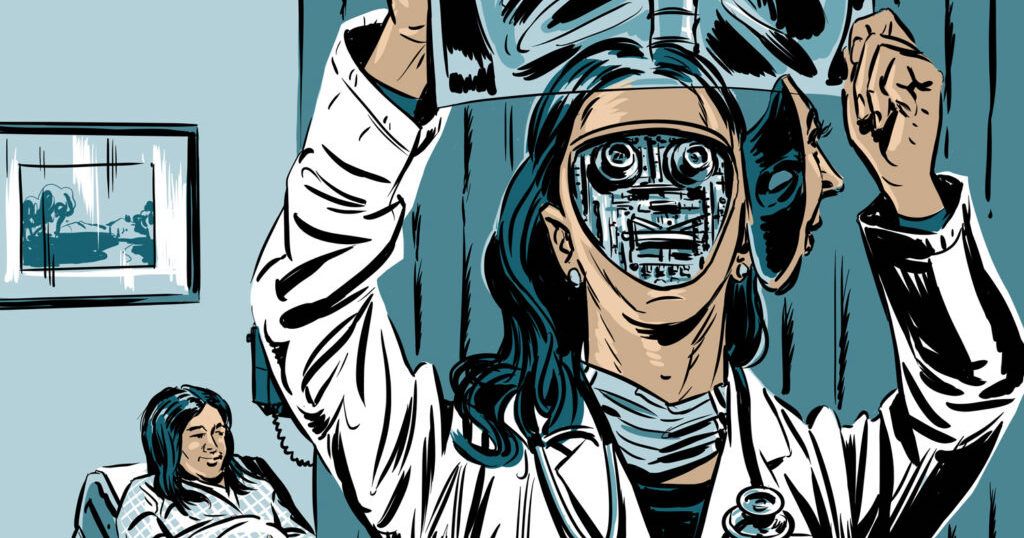A recent article by Chris Sweeney in the Harvard Public Health magazine surveys current applications of AI in healthcare, highlighting the contributions of various members of the Harvard Chan School in exploring the potential of these technologies and exposing some of their limitations. The article acknowledges promising new developments, pointing out the work of faculty including Biostatistics professors JP Onnela, Tianxi Cai, and Francesca Dominici who use tools such as digital phenotyping, natural language processing, and machine learning to identify patterns and relationships within the vast amounts of data generated by sources as diverse as wearables, electronic health records, Medicare claims and air pollution monitors.
Though leading to improvements in terms of drug discovery, clinical practice, and the identification of important causal relationships, even the faculty who are its greatest proponents are quick to point out some of the ways in which the applications of AI can go awry. Issues of reproducibility have long troubled department chair John Quackenbush, who has throughout his career advocated for greater transparency, and access to the data and methods needed to test algorithms before they are scaled up or used in clinical settings. Others, including Biostats’ Heather Mattie, lead work on one Achilles’ heel of AI; namely, bias – both in the data and in the algorithms themselves, that can lead to misleading results, and ultimately exacerbate social inequities.
Despite these ongoing issues, the applications of AI continue to expand in part because the technology enables researchers to harness the potential from a tsunami of data, and to do so in efficient ways — a particular boon in resource-poor settings. In all its complexity, AI is becoming increasingly integral to our healthcare systems. However, the article concludes, to do no harm in the healthcare context, it must be utilized with the right policy oversight, a healthy dose of skepticism and methodological care, and with continued respect for both the innate capacities of human beings and their potential failings.




